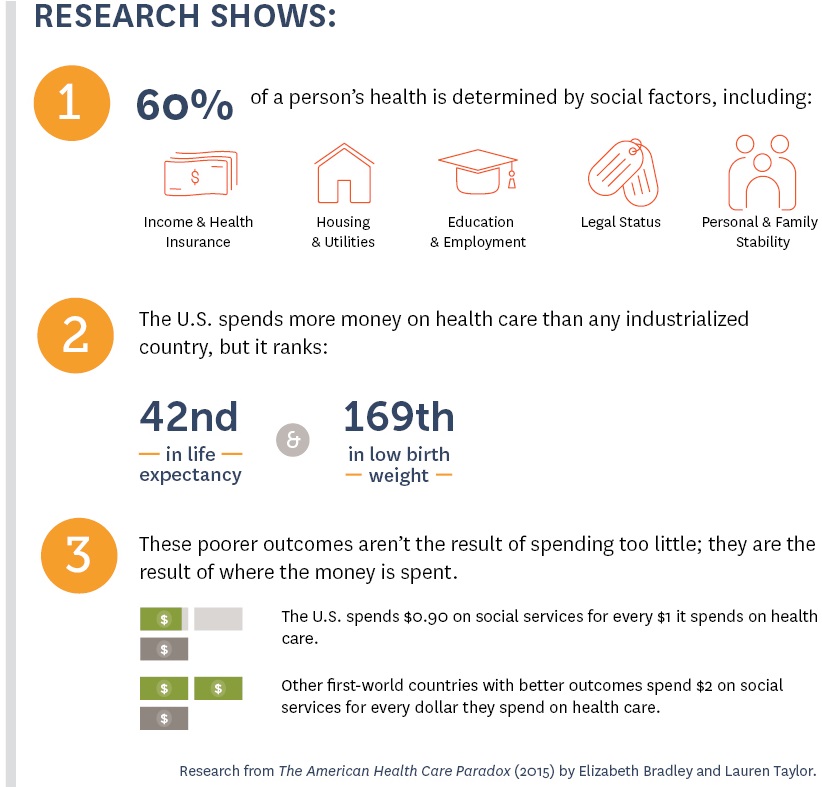A person’s health is determined by a lot more than high-quality health care services and personal behavior; it’s shaped by environment—where someone lives, works, plays, and learns.
Low-income and other vulnerable communities have less access to basic needs and opportunities because of the ways in which deep-rooted, inequitable systems and practices shape their environments. In turn, people in these communities do not have an equal opportunity to thrive or reach their optimal health.

With a growing understanding of how social and environmental factors impact health and well-being, the health care system—providers and insurers alike—are attempting to address these issues. On the front lines, health organizations increasingly use tools like PRAPARE and the Accountable Health Communities Screening Tool to screen patients for a range of social problems. While this type of screening helps uncover important health-related social factors, it often leaves health care providers wondering, “What do I do now that I know there is a problem?”
Lawyers as Specialists on the Health Care Team
The health care system needs the right workforce to tackle social problems once detected. As a result, patient navigators, social workers, and others have become fixtures on the health care team. However, many complex health-related social problems are entrenched in federal, state, and local policies and laws that require expertise in poverty law and administrative law.
Attorneys in general—and poverty lawyers in particular—have an in-depth understanding of relevant policies, laws, and systems, and seek out solutions at the individual and policy levels to a range of health-related social and legal needs. When embedded as specialists in a health care setting, lawyers can directly resolve specific problems for individual patients, while also helping clinical and non-clinical staff navigate system and policy barriers and transform institutional practices. Using legal expertise and services, the health care system can disrupt the cycle of returning people to the unhealthy conditions that would otherwise bring them right back to the clinic or hospital.
